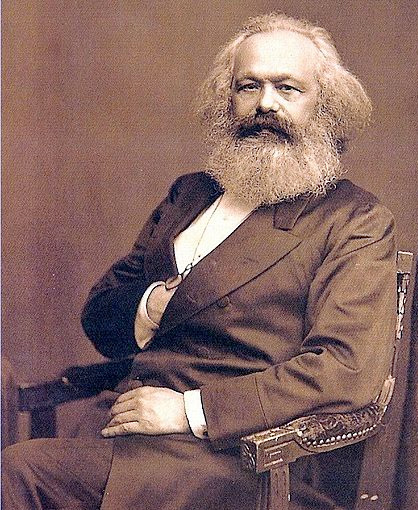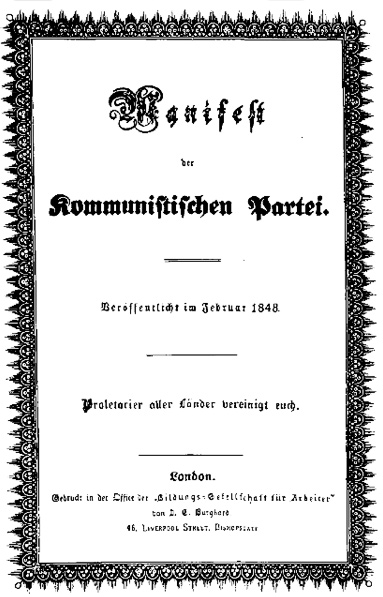 Source: Karl Marx 001, John Mayall, Wikimedia
Source: Karl Marx 001, John Mayall, Wikimedia
Have you ever heard people complain that "The rich get richer and the poor get poorer"? This is not a new complaint. People have been saying this for hundreds of years. As the Industrial Revolution progressed, a few people who owned factors of production became very wealthy while the average worker remained poor. Many reformers began to argue that the government needed to find a way to more evenly distribute wealth among the masses.
 Source: Karl Marx 001, John Mayall, Wikimedia
Source: Karl Marx 001, John Mayall, Wikimedia
One such reformer was a German philosopher named Karl Marx. Marx, along with his colleague Fredrick Engels, published a paper called the Communist Manifesto in 1848. In this paper Marx described his belief that each stage of history is marked by struggle between the rich and poor (he referred to these groups as the Bourgeoisie and the Proletariat). He also believed that all wealth is created by laborers who generally remain poor. He described a series of events in which the poor who outnumber the rich would rebel against the rich, their oppressors, and gain control of the government and the privately owned factors of production. Once this occurred, the newly formed government could control production and use the creation of wealth of to benefit everyone, not just the rich. Marx believed that after experiencing the many benefits of this new Socialist system, all people would willingly work together to provide for each member of society. Marx said, "From each according to his abilities, to each according to his needs." This theory has become commonly referred to as
Communist Manifesto
 Source: Communist-manifesto, Friedrich Engels, Karl Marx, Wikimedia
Source: Communist-manifesto, Friedrich Engels, Karl Marx, Wikimedia